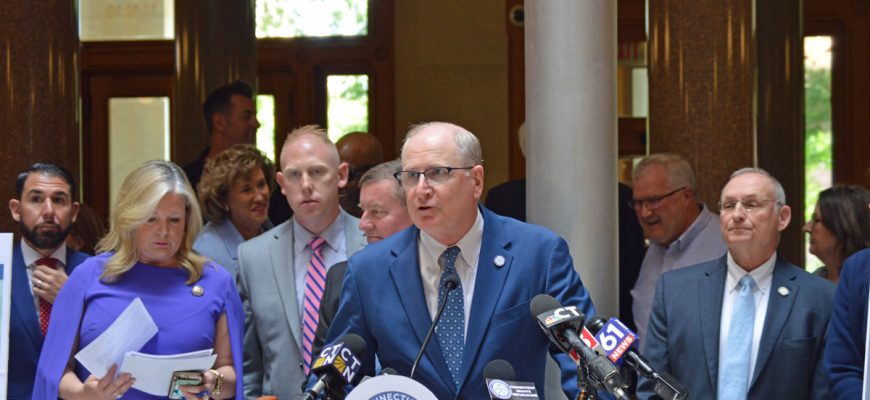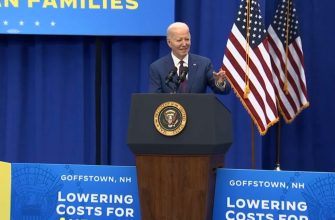
When the legislature adjourned Wednesday night, it did so without coming to a conclusion about one of the hot button topics of the session — commutations.
The Senate failed to take up a bill on a new commutations process, leaving the Board of Pardons and Paroles to decide for itself what to do. In the meantime, the board is ready to review the policy that passed the House of Representatives and hopes to accept applications sometime next month.
“I think we’re close to having a policy,” said David Bothwell, legislative and administrative advisor for the board of pardon and paroles. He added the board’s goal is to have hearings for approved applications before the end of the year.
The board temporarily stopped taking applications for prison sentence commutations in April amid controversy over a rise in approved commutations this year.
The board granted just three commutations from 2017 to 2021. Last year, that number jumped to 77.
Bothwell said the board had no issue with waiting for the legislature to deliver new policies and a new process.
“We get our authority from the legislature and we always have,” he said.
That process never came, though. In mid May, the House approved changes meant to address a range of concerns raised by family members of victims.
Senate Republicans, though, ripped the plan and vowed to kill it. The bill never got brought to the Senate floor.
“I’m disappointed and frustrated,” said Rep. Steve Stafstrom, R-Bridgeport, co-chairman of the legislature’s Judiciary Committee. “I believe the Senate Republican caucus played politics, allowed that to trump good policy.
Sen. Heather Somers, R-Groton, said in a statement Thursday that she plans to reach out to parole board Chairwoman Jennifer Medina Zaccagnini to talk about policies. Zaccagnini had her own draft procedure, as well.

“I have confidence that the new chairwoman seeks a balanced approach which weighs the seriousness of the committed crime, the exhaustion of sentence modifications, and the length of time served with victims rights, redemption and second chance,” Somer said in her statement.
Bothwell said the House’s bill is not far off from the draft policy the board created under new Chairwoman Jennifer Medina Zaccagnini.
“We worked on revising our policy internally in case nothing did pass,” he said. Bothwell also said he expects the board’s policy will largely mirror what the House approved with a 102-45 vote.
The bill, among other things, sought to require eligible inmates that have served at least 10 years in prison before to apply for a commutation. Inmates serving a life sentence are not eligible.
Inmates cannot apply if they had a commutation request denied within the previous five years; or had a prosecutor nolle, or drop, criminal charges in the last 13 months; or have unresolved criminal cases, warrants or fines and fees.
It also proposed the board notify the victim 90 days before a hearing. The advocate is required to give victims at least 30 days notice.
The notification timing was a big issue for Senate Republicans, backed by some family members of murder victims.
“We have been crystal clear: violent crime victims and their families must be put first,” Somers said. “Their voices must be heard and respected.”
Those advocates said they wanted to know everytime the inmate seeking a commutation applied. Stafstrom said other victims and families, though, only wanted to know if a hearing was happening because each notification brought back pain and grief.
Bothwell said the board was waiting for guidance from the legislature on the notification policy.
“We don’t deal with victims in a one-on-one process,” he said. “We deal with (the Office of) Victim Services.”
Lamont, who replaced former board chairman Carleton Giles with Zaccagnini, amid the controversy, said Tuesday it was “good that the legislature weighed in.”
He also said he wanted the board to pause commutation so lawmakers, victims and families and others could look at the process and provide input.
“I want to be sure that people understand what the commutation process is, why it works and why it makes a difference in a state that has one of the lowest crime rates in the country,” he said.
With the session coming to an end, Lamont also said he supported the board resuming commutations.
Somers said Senate Republicans “will always insist upon sunlight and frequent communication.”
They accused the House of coming up with a commutations process without any input from them. But Stafstrom said he worked on the bill with Rep. Craig Fishbein, R-Wallingford, a ranking member of the Judiciary Committee, and gave Senate Republicans a draft two weeks before the House vote.
“They decided they didn’t want to be a part of the solution to having the legislature weigh in on what that should look like,” he said Wednesday.








